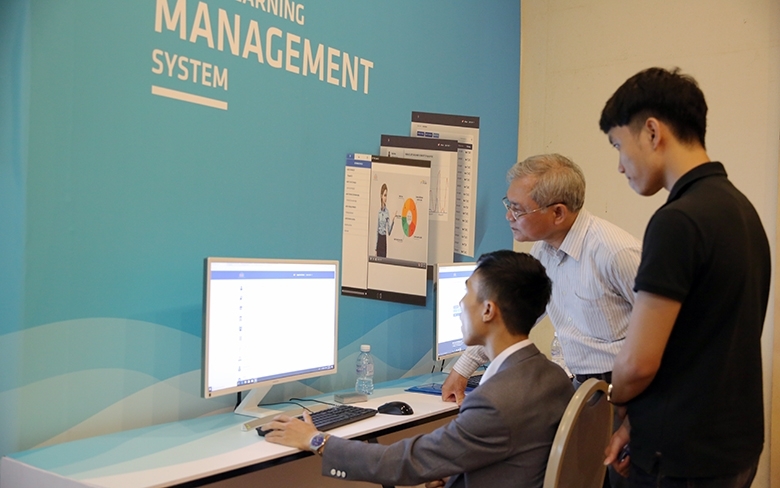
The 2017 Provincial Competitiveness Index (PCI) report by the Vietnam Chamber of Commerce and Industry (VCCI) shows that 69% of FDI enterprises in Vietnam are facing difficulties in recruiting skilled technicians to serve their production and business activities. The report also showed that the quality of human resources in Vietnam has not made many breakthroughs. The FDI enterprises assessment of the quality of training and efficiency of Vietnamese workers in 2017 only reached 3.8 points. Therefore, businesses have to spend more money on training activities when recruiting new personnel, while the level of spending has increased over the years. In 2013, the average cost for training was only 3.6% of business costs, while in 2014 it increased to 5.9%, and in 2017 reached 5.7%.
In fact, Vietnamese labourers remain limited in terms of soft skills, foreign language skills, teamwork skills, information technology skills and creativity. Many of the labourers who have been trained still do not meet the requirements of their work so employers have to take time to train them again. According to Assoc. Prof. Dr. Nguyen Manh Quan, Head of Institute of Business Research and Development (Hanoi University of Business and Technology), if the management does not do its job effectively, it will not stimulate the motivation and creativity of human resources.
At present, many Vietnamese companies are reluctant to disclose themselves, so it is difficult to find solutions to changes in the quality of human resources. Meanwhile, enterprises need to regularly assess and test their capabilities in accordance with international standards. Then the enterprise will find solutions to enhance their capacity and boost international integration. According to VCCI Chairman Vu Tien Loc, 60% of FDI enterprises still intend to expand their businesses in Vietnam, which was reflected in the movement of capital flows, but not because of the quality of labour but rather because of institutional stability and the large scale of the market, along with cheap labour.
According to a survey of nearly 40 departments of Labour, War Invalids and Social Affairs and more than 20 management boards of industrial zones and export processing zones, the trend of enterprises employing foreign workers has increased, including nearly 50% of unskilled workers and only 45% of labourers having a university level or above. Therefore, it is necessary to deploy measures to improve the technical capacity of Vietnamese workers and to develop internal staff training strategies to promote the efficiency of the FDI enterprises’ operation.
It can be said that the above situation arises from the lack of interest of enterprises, and other organisations outside of the enterprise, for the training and development of human resources in the enterprise. In order to reform human resource training, enterprises need to apply technological solutions to training and quickly improve the quality of human resources. Nguyen Thi Nhan, representative of Huong Viet Development Company Limited, shared that the organisation of internal training programmes is one way to remove bottlenecks and create a strong internal force for the enterprise to develop sustainably. The trend of training in enterprises is gradually moving from traditional training to online training by shortening the geographical distance and training times, and saving the cost of organising classes. Applying cloud computing to online training is considered one of the most effective solutions. However, the application of online training is still the “game” of large corporations, because investment in building online training systems is very expensive and frequent, such as training management software, infrastructure machinery, equipment, and maintenance operations teams. The successful application of technology in human resource training depends on the willingness to innovate and the determination of enterprises.
According to Vu Tuan Anh, an expert in digital transformation, start-ups and innovation, the fourth industrial revolution is changing the enterprises’ way of organisation and operation. The transformation of digital manpower begins with the awareness, learning and thinking of the leader on how to use 4.0 technologies to increase the operating value of businesses. In the near future, it is necessary to apply technology to improve the quality of labour from general education and vocational training. Low labour quality will be less attractive to foreign investors, meanwhile the income of workers will remain low.

 Previous page
Previous page Back to top
Back to top







